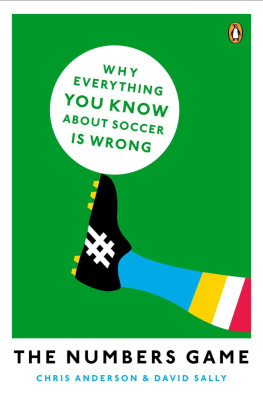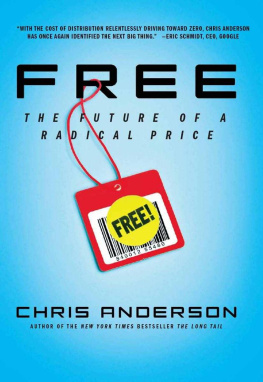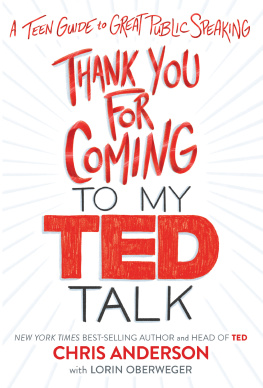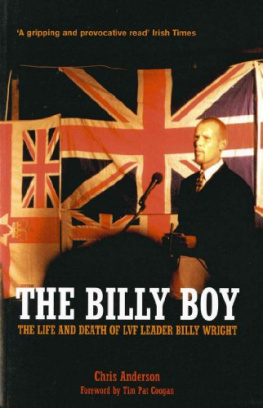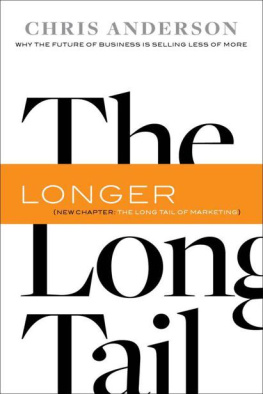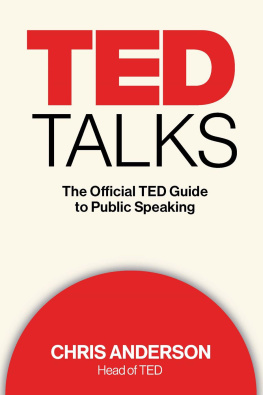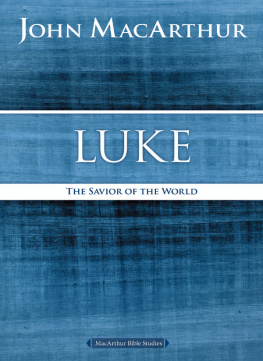Chris Anderson - The Numbers Games
Here you can read online Chris Anderson - The Numbers Games full text of the book (entire story) in english for free. Download pdf and epub, get meaning, cover and reviews about this ebook. City: USA, year: 2013, publisher: Penguin Group, genre: Politics. Description of the work, (preface) as well as reviews are available. Best literature library LitArk.com created for fans of good reading and offers a wide selection of genres:
Romance novel
Science fiction
Adventure
Detective
Science
History
Home and family
Prose
Art
Politics
Computer
Non-fiction
Religion
Business
Children
Humor
Choose a favorite category and find really read worthwhile books. Enjoy immersion in the world of imagination, feel the emotions of the characters or learn something new for yourself, make an fascinating discovery.
- Book:The Numbers Games
- Author:
- Publisher:Penguin Group
- Genre:
- Year:2013
- City:USA
- Rating:5 / 5
- Favourites:Add to favourites
- Your mark:
- 100
- 1
- 2
- 3
- 4
- 5
The Numbers Games: summary, description and annotation
We offer to read an annotation, description, summary or preface (depends on what the author of the book "The Numbers Games" wrote himself). If you haven't found the necessary information about the book — write in the comments, we will try to find it.
The Numbers Games — read online for free the complete book (whole text) full work
Below is the text of the book, divided by pages. System saving the place of the last page read, allows you to conveniently read the book "The Numbers Games" online for free, without having to search again every time where you left off. Put a bookmark, and you can go to the page where you finished reading at any time.
Font size:
Interval:
Bookmark:

PENGUIN BOOKS
THE NUMBERS GAME
Chris Anderson, at seventeen, found himself playing in goal for a fourth-division club in West Germany; today hes a professor at Cornell University. An award-winning social scientist and soccer analytics pioneer, Anderson consults with leading clubs about how best to play the numbers game.
David Sally is a former baseball pitcher and now a visiting professor at the Tuck School of Business at Dartmouth College, where he analyses the strategies and tactics people use when they play, compete, negotiate, and make decisions. He is an adviser to clubs and other organizations in global soccer.
The Numbers Game
Why Everything You Know About Soccer Is Wrong
CHRIS ANDERSON AND DAVID SALLY


PENGUIN BOOKS
Published by the Penguin Group
Penguin Group (USA) Inc., 375 Hudson Street,
New York, New York 10014, USA

USA | Canada | UK | Ireland | Australia | New Zealand | India | South Africa | China
Penguin Books Ltd, Registered Offices: 80 Strand, London WC2R 0RL, England
For more information about the Penguin Group visit penguin.com
First published in Great Britain by Viking, an imprint of Penguin Books Ltd, 2013
Published in Penguin Books (USA) 2013
Copyright Chris Anderson and David Sally, 2o13
All rights reserved. No part of this product may be reproduced, scanned, or distributed in any printed or electronic form without permission. Please do not participate in or encourage piracy of copyrighted materials in violation of the authors rights. Purchase only authorized editions.
ISBN 978-1-101-62887-4
While the authors have made every effort to provide accurate telephone numbers, Internet addresses, and other contact information at the time of publication, neither the publisher nor the authors assume any responsibility for errors or for changes that occur after publication. Further, publisher does not have any control over and does not assume any responsibility for author or third-party Web sites or their content.
To our home teams
Kathleen, Nick and Eli
Serena, Ben, Mike, Tom and Rachel
In sports, what is true is more powerful than what you believe, because what is true will give you an edge.
Bill James
Seven words have long dominated soccer:
Thats the way its always been done .
The beautiful game is steeped in tradition. The beautiful game clings to its dogmas and its truisms, its beliefs and its credos. The beautiful game is run by men who do not wish to see their power challenged by outsiders, who know that their way of seeing the game is the true way of seeing the game. They do not want to be told that, for more than a century, they have been missing something. That there is knowledge that they do not possess. That how things have always been done is not how things should always be done.
The beautiful game is willful in its ignorance. The beautiful game is a game ripe for change.
And at the center of that change are numbers. It is numbers that will challenge convention and invert norms, overhaul practices and shatter beliefs. It is numbers that let us glimpse the game as we have never seen it before.
Every world-class club knows this. All of them employ analysis staff, specialists in data collection and interpretation who use all the information they can glean to plan training sessions, design playing systems, plot transfers. There are millions of pounds and hundreds of trophies at stake. Every club is prepared to do anything it takes to gain the slightest edge.
But what none of those clubs has yet managed to do is take those numbers and see their inner truth. It is not just a matter of collecting data. You have to know what to do with them.
This is soccers newest frontier. It is often said that soccer cannot, or should not, be broken down into mere statistics. That, critics say, removes the beauty from the beautiful game. But that is not how the clubs who fight to win the Champions League or the Premier League or the nations battling to lift the World Cup see it, and neither do we. We believe that every shred of knowledge we can gather helps us love soccer, in all of its complex glory, all the more. This is the future. There is no stopping it.
That is not to say all of soccers traditions are wrong. The data we are now able to gather and analyze confirm that some of what weve always thought was true really is true. Beyond this, however, the numbers offer us further truths, make clear things we could not have known intuitively and expose the falsehoods of the way its always been done. The biggest problem resulting from following a venerated tradition and hardened dogma is that they are rarely questioned. Knowledge remains static while the game itself and the world around it change.
It was a simple question, asked in that bewildered tone Americans often use when discussing soccer.
Why do they do that?
Dave and I were watching Premier League highlights, and something had caught his eye. Not a moment of dazzling skill, or bewitching beauty, or even inept refereeing, but something altogether more mundane. Dave was baffled, like countless central defenders before him, by Rory Delaps long throws.
Every single time Stoke City won a throw-in within hurling distance of the opposition box, Delap would trot across to the touchline, dry the ball with his shirtor, when at home, with a towel handily placed for that very purposeand proceed to catapult it into the box, over and over and over again.
To me, as a former goalkeeper, the benefits of Delaps throws were obvious. I explained it to Dave: Stoke had a decent team but one lacking a little in pace and even more in finesse. What they did have, though, was height. So why not, when the ball goes out of play, take the opportunity to create a chance out of nothing? Why not cause a little havoc in your opponents ranks? It seemed to work.
That did not sate Daves curiosity, though. It simply served to make him ask the next logical question.
So why doesnt everyone do it?
The answer to that was equally obvious: not everyone has a Rory Delap, someone capable of hurling the ball great distances with that flat trajectory, like a skimmed stone, that panics defenders and confuses goalkeepers.
Dave, himself a former baseball pitcher, tried another tack: But cant you try and find one? Or make one of your players lift weights and practice the javelin and the hammer?
There was a problem with this. Yes, Daves questions, like those of a persistently inquisitive child, were getting annoying; more irritating still, I did not have a good answer.
You could play the game the way Stoke do, I countered, if you have a Delap and loads of tall central defenders. But its just not very attractive. Its not what you do unless you have to.
Why? Dave responded, with crushing logic. It seems to work for them.
And that was it. All I had left, like a frustrated parent, was one word. Because.
Because there are some things you dont want to do when playing soccer. Because, even though a goal created by a long throw is worth just as much as one from a flowing passing move, its almost like it doesnt count as much. Because, to a purist, theyre somehow not quite as deserved.
Font size:
Interval:
Bookmark:
Similar books «The Numbers Games»
Look at similar books to The Numbers Games. We have selected literature similar in name and meaning in the hope of providing readers with more options to find new, interesting, not yet read works.
Discussion, reviews of the book The Numbers Games and just readers' own opinions. Leave your comments, write what you think about the work, its meaning or the main characters. Specify what exactly you liked and what you didn't like, and why you think so.

